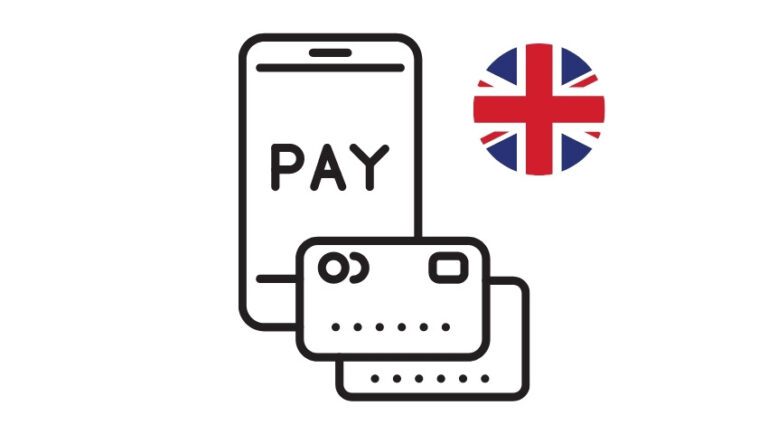Television Licensing in the United Kingdom: Rules, Costs and Enforcement 2023
Learn all about Television Licensing in the United Kingdom – who needs a TV licence, how much it costs, where to purchase, penalties for evasion, and more. Understand the rules and requirements around the TV licence fee, a mandatory tax that funds the BBC.
Get a comprehensive overview of TV licensing in the UK – when you need one, how to apply, discounts available, and consequences of avoiding payment.

What is the TV Licence?
The TV licence is a tax mandated by the UK government that funds the BBC and its television, radio and online services. Revenue from TV licences makes up over 75% of the BBC’s budget.
The licence fee is formally known as the “BBC Television Licence Fee” and comes under the Communications Act of 2003 and the Communications (Television Licensing) Regulations 2004.
In short, if you watch, stream or record television programming as it’s being broadcast in the UK, you need a valid TV licence.

When is a TV Licence Required?
You need a TV licence if you:
- Watch live television on any channel, whether via an aerial, satellite dish, cable, or online streaming.
- Record live TV to view later – for example, using a DVR, VHS, DVD or PVRS.
- Watch any BBC iPlayer content live or on demand.
- Watch other online streaming services that show live British television like YouTube Live, Amazon Prime Video, Now TV, Sky Go, etc.
You do NOT need a licence if you only ever watch:
- On demand services like Netflix, Now TV, Disney+ and Amazon Prime Video.
- Recorded movies and shows after they air.
- DVDs and Blu-rays.
- YouTube videos or other non-live internet content.
Essentially, only watching live TV or BBC content requires a licence. Anything strictly on demand is licence free.

TV Licensing for Homes
For homes in the UK, you need to purchase a TV Licence if you watch TV at the property. This covers:
Individual Homes
If you live alone or only with a partner/family, a single licence covers your household’s TV watching.
House Shares
In a shared property, you only need one licence to cover a shared living area used by all occupants.
But any housemates who watch TV separately in individual bedrooms must purchase their own licence.
Student Accommodation
Students living in university dorms or halls only require a licence for TVs in their private bedroom. Shared communal dorm areas should already be covered.
Students can also watch TV on battery-operated devices like laptops and tablets using a home TV licence while away at school.
Holiday Lets & Airbnbs
If you rent out a property for short term stays, you need a licence to provide a TV in your listing. Long term tenants are responsible for their own licence.

Licensing Rules for Businesses
Businesses also need licences for any TV viewing on the premises:
- Shops, offices, warehouses – Any TV use requires a licence.
- Hotels, B&Bs – Each room with a TV must be covered or get a single licence covering up to 15 rooms.
- Pubs, bars, restaurants – Must be licensed for any TVs, including those in private business quarters.
- Hospitals, care facilities – Individual licences are needed for patient rooms with TVs. Shared lounge areas only need one.
- Vehicle/van rentals – Require a licence if hiring out vehicles with televisions installed.
Any public business with a television must pay the licence fee – no exceptions.
How Much Does a TV Licence Cost?
The cost of a standard colour TV licence for homes and businesses is £159 per year (as of August 2023).
Concession discounts are:
- Black and white TV licence – £53.50 per year
- Blind or severely sight impaired – 50% off
The licence fee increases most years in line with inflation. You pay for the full year upfront – quarterly or monthly instalments aren’t available.
While not classified as a tax, the TV licence is mandated by law like any other tax. Not paying can incur significant penalties.

How to Apply for a TV Licence
Applying for a new TV licence or renewing an existing one is straightforward:
Online
You can purchase online at tvlicensing.co.uk. It takes just 5-10 minutes to complete.
By Phone
Call 0300 790 6071 and provide your details over the phone. Have your payment card ready.
By Post
Request an application form to be sent to you, then return the completed form via post with payment.
You can pay the licence fee via debit/credit card, cheque, or at the Post Office. The licence will be posted to your address within 7-10 days.
Making Changes to an Existing Licence
If you move homes, you must update your address on your TV license. This can be easily done online on the TV Licensing website.
You may also need to update your details if you change your name or email address. Sign into your account to amend any information.
For refunds and cancellations, you can submit requests online for consideration. Refunds are prorated minus an admin fee.

Enforcement and TV Licence Evasion Penalties
It is a criminal offence under the Communications Act to use a television receiver without a valid TV licence. Strong penalties exist as deterrents:
Fines
- Watching TV without a licence can result in a fine of up to £1,000. Fines are imposed by magistrates’ courts.
- If taken to court and convicted, the maximum fine is £2,000 plus legal costs.
Prosecution
- Over 120,000 people were prosecuted for TV licence evasion in 2021, resulting in fines totalling £59 million.
- A criminal record is likely if prosecuted, which can negatively impact employment and travel visas.
Jail time
- While rare, the maximum penalty is imprisonment for non-payment of fines related to TV licence evasion prosecution.
To deter licence fee avoidance, TV Licensing makes consistent efforts to detect unlicensed properties and pursue payments owed. Technology like databases, detection vans and inspector visits are used.
Overall, it’s simply not worth the risk and consequences to avoid paying for a required TV licence.
Exceptions and Discounts for Senior Citizens
There are some circumstances where exceptions, concessions or discounts apply:
- Senior discount – Over 75s receiving Pension Credit are eligible for a free TV licence. Individuals must show documentation confirming their entitlement.
- Registered blind – Those registered as blind/severely visually impaired can receive 50% off the cost of a TV licence.
- Care homes – May receive a discount for Residential Care licence covering TVs in resident rooms.
But aside from special cases, the vast majority of households and businesses are required to pay the standard licence fee amount in full.

The Future of the TV Licence Fee
The relevance and future form of the TV licence has come under scrutiny in recent years. Critics argue it’s outdated in the age of streaming. But for now, it remains required by law.
There is ongoing debate around decriminalising non-payment and transitioning to a new funding model in the coming decade. However, changes would require parliamentary approval.
In the near term, the licence fee continues to be mandatory for accessing television in the UK. Stay up to date on any policy changes that may impact requirements.






